Contact-CTA or newsletter signup
Lorem ipsum dolor sit amet, consectetur adipiscing elit, sed do eiusmod tempor incididunt ut labore et dolore magna aliqua.
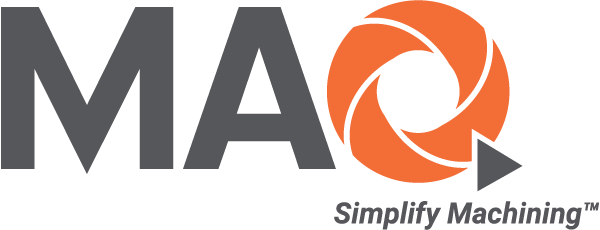
Whitepaper
Boosting productivity and precision with vibration-dampening machining solutions
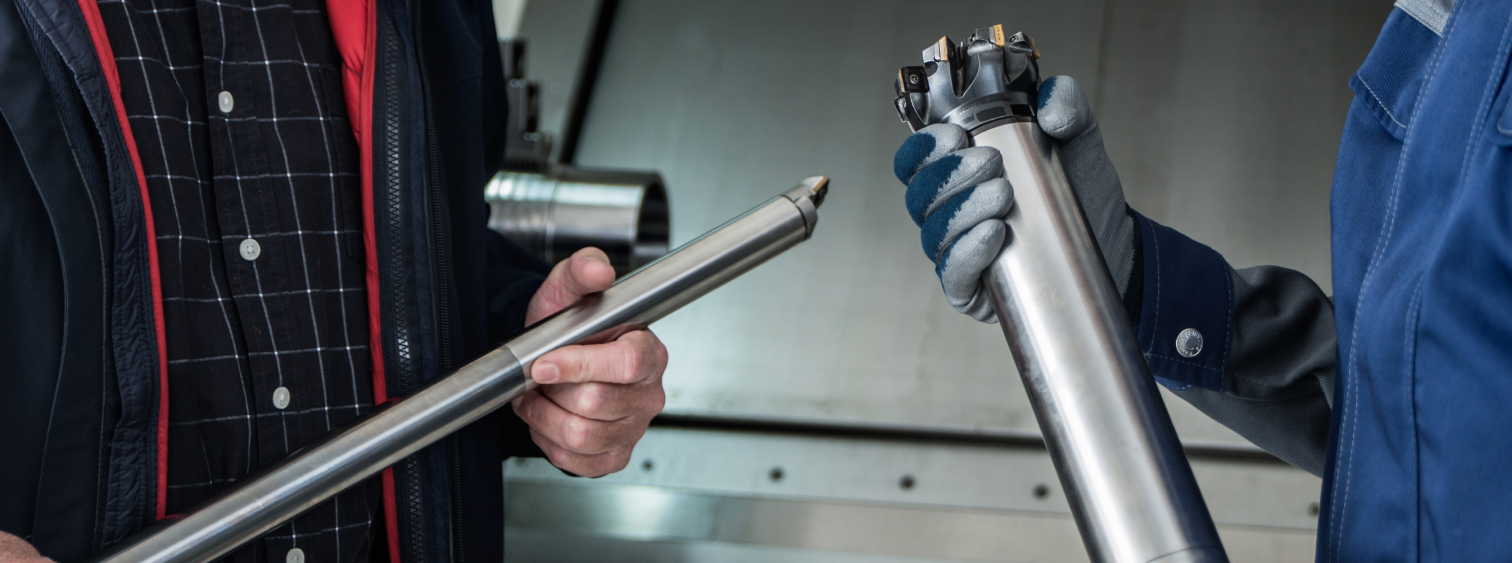
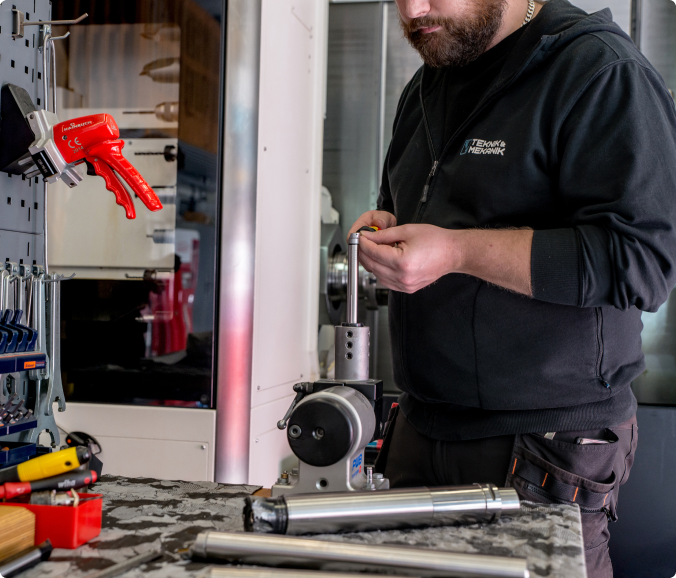
In metalworking, the unpredictability of machining operations is a common issue. Even with identical tools and machines, the performance can vary significantly due to unforeseen factors, primarily machining vibrations. These vibrations, also known as tool chatter, lead to inefficiencies, reduced quality, and higher costs.
The key to increasing productivity lies in controlling these vibrations. With the right solutions, production processes become more predictable, improving efficiency, reducing stops, and ensuring better-quality outputs.
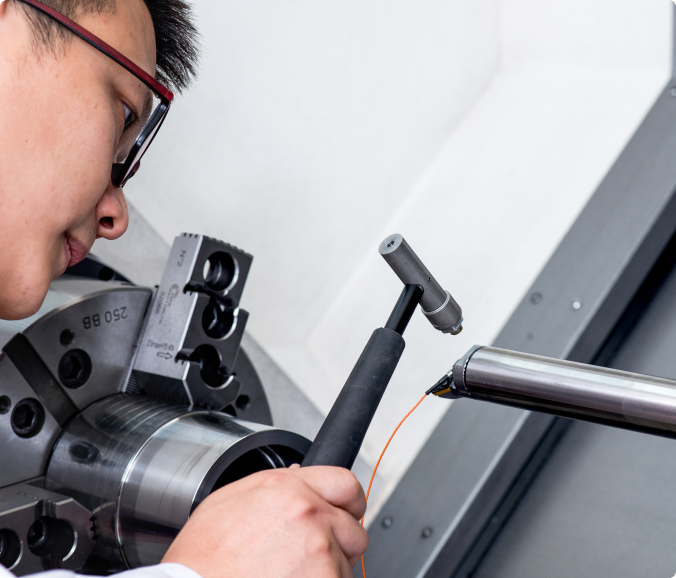
Machining vibrations occur when there is unwanted movement between the workpiece and the tool. Factors like speed, feed rate, and material properties can impact the intensity and frequency of these vibrations. Not only do they cause surface imperfections, but they also increase tool wear and disrupt overall productivity.
In many cases, machining vibrations go unnoticed until quality issues arise. The result is costly delays and flawed products. Addressing these vibrations is crucial for maintaining quality and improving precision in CNC machining operations.

2. Tool breakage Excessive vibrations cause tools to wear out faster and even break, leading to frequent replacements and machine downtime.
3. Production delays To avoid damage, operators often slow down cutting speeds, reducing overall productivity.
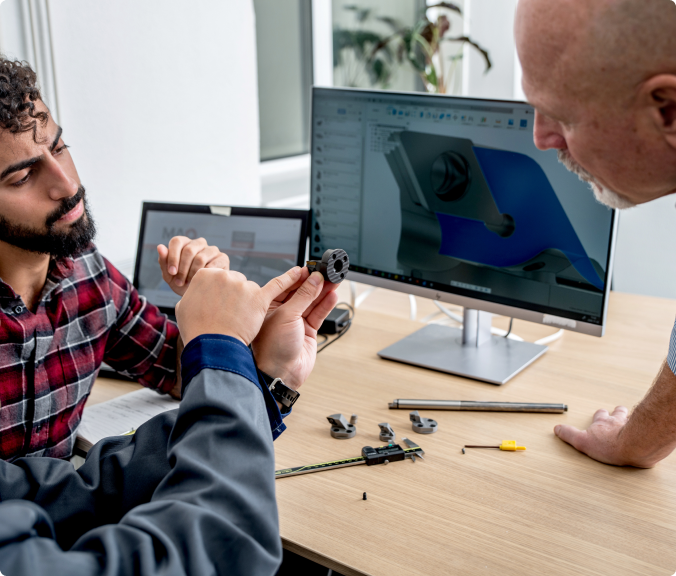
To combat these challenges, adopting vibration-dampening technologies is essential. Among the damping techniques used to control vibrations in machining, mass dampers on cutting tools are the most cost-effective and require the least operator engagement.
Here are some practical solutions:
1. Pre-tuned mass dampers
Mass dampers pre-tuned to specific applications (7XD, 10XD, etc.) are effective at reducing vibrations within a set frequency range. However, they work best when vibrations are predictable and consistent.
2. Self-tuning mass dampers
For operations with varying vibration frequencies, self-tuning mass dampers are ideal. These advanced dampers automatically adjust to multiple frequencies, providing a “plug and play” solution that simplifies the machining process. They offer longer tool life, improved surface quality, and require minimal setup.

• Cost savings Reducing tool wear and avoiding additional processes like grinding cuts operational costs.
• Improved precision Vibration-dampening solutions allow for higher accuracy, reducing errors and waste.
• Simplified setup Self-tuning dampers require no specialized knowledge, making them easy to implement and maintain.
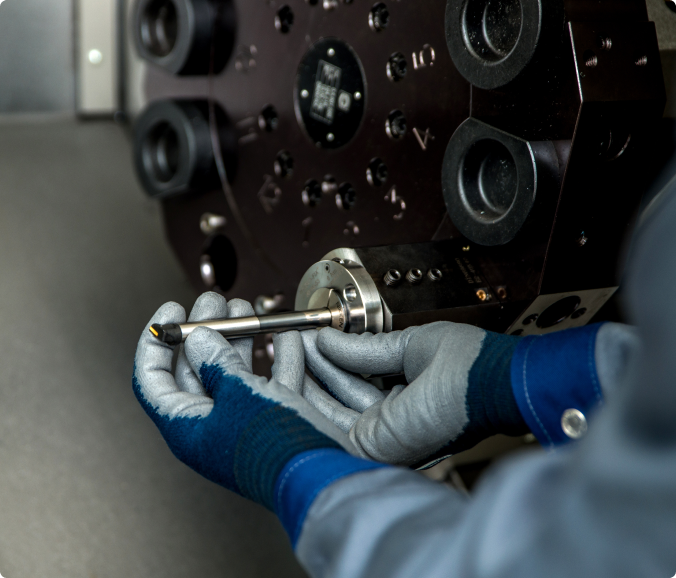
By adopting vibration-dampening technology, metalworking operations can become more efficient, predictable, and cost-effective. Whether through pre-tuned or self-tuning mass dampers, improving the stability of your machining operations will enhance productivity and product quality.
Interested in discovering how metalworking productivity solutions can enhance your operations? Contact us today, and let us help you streamline your machining process for improved precision and efficiency.
Want to learn how vibration-dampening technology can improve your metal cutting operations? Contact us today, and we’ll help make your machining easier.
Lorem ipsum dolor sit amet, consectetur adipiscing elit, sed do eiusmod tempor incididunt ut labore et dolore magna aliqua.